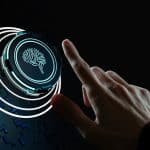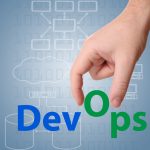Dealing with the challenges of patch management [Q&A]

Patching is an essential part of keeping systems secure and it has been for almost as long as computers have existed.
Why then is it something that many organizations still seem to struggle with? We talked to Tom Bridge, principal product manager at JumpCloud to find out and to learn how companies can get to grips with patch management.
The impact of supply chain data breaches [Q&A]

Digital supply chain breaches are becoming more common, as supply chains increase in complexity so the attack surface grows and even smaller businesses can have complex webs of connections.
But how do supply chain breaches impact businesses? And what can they do to cut the risk? We spoke to Jeremy Hendy, CEO of digital risk protection specialist Skurio, to find out.
Controlling the costs of cloud deployment [Q&A]

Enterprises often turn to the cloud as a way of reducing their IT costs. But using the cloud by itself doesn't necessarily lead to savings, especially if there are no adequate controls in place.
We talked to Lenley Hensarling, chief strategy officer at real-time data platform Aerospike, to discover how the right management strategies can help rein in costs for public, private, hybrid, and multi-cloud deployments.
Tying Artificial intelligence and web scraping together [Q&A]

Artificial intelligence (AI) and machine learning (ML) seem to have piqued the interest of automated data collection providers. While web scraping has been around for some time, AI/ML implementations have appeared in the line of sight of providers only recently.
Aleksandras Šulženko, Product Owner at Oxylabs.io, who has been working with these solutions for several years, shares his insights on the importance of artificial intelligence, machine learning, and web scraping.
The evolution of the DevOps corporate culture and where 'shift left' takes it next [Q&A]

DevOps has become the mainstream development culture in recent years, but like other areas of the tech world it continues to evolve.
Add in changes brought about by the pandemic, the Great Resignation, automation and more, and it's clear that the evolution is set to continue. We spoke to Shanea Leven, CEO of CodeSee to find out what changes have already taken place and what the future might hold.
Why PKI still has a key role in security [Q&A]

The origins of Public Key Infrastructure (PKI) date back to the 1970s and research at UK intelligence agency GCHQ, though it didn't emerge from the secret world and take off commercially until the 1990s.
PKI still underlies a great deal of modern cryptography, so we spoke to Ryan Sanders, senior product marketing manager at Keyfactor, to find out more about it and why it isn’t going away any time soon.
The challenges facing Kubernetes developers and how to overcome them [Q&A]

Developers have a lot to think about in 2022. Security tops the list and, increasingly, developers in the cloud and using Kubernetes need to think about cost too.
We talked to Rob Faraj, co-founder of monitoring tool Kubecost, to find out cultural shifts that organizations and developers need to make to overcome challenges created by the increase in adoption of Kubernetes.
Cybersecurity and the art of persuasion [Q&A]

Despite the introduction of systems based on AI and other technologies, cybersecurity remains an ultimately human problem.
It's not just a problem for IT teams either, to keep the enterprise safe security needs to be taken seriously throughout the organisation. It's the role of the CISO to ensure this but it can be a challenge to implement.
Why learning and development are key to retaining tech workers [Q&A]

Skills shortages in the tech sector are nothing new but COVID and the Great Resignation have highlighted matters over the last year.
Retaining tech workers and keeping their skills up to date is more important than ever, so we spoke to CGS's senior director of learning strategies, Regina Nowlan, to find out why learning and development are an important factor in the equation.
Why developers are quitting over on-call contracts [Q&A]

The US Labor Department recently reported that 4.5 million workers left their jobs in November 2021, the highest exodus on record. The Great Resignation has become a hot topic in the tech world as the pandemic, new virtual team dynamics and other factors have created new waves of attrition.
In the tech industry -- where developer talent is a make or break factor in a company's success -- HR departments, hiring managers and software team leads are scrambling to rethink the developer happiness factors they can control to stem the tide.
What the UK's revised security guidelines mean for business [Q&A]

Changes to the UK government's Cyber Essentials security certification scheme come into force today. They include things like guidelines on remote working and hybrid approaches, rules for cloud service accounts -- such as deploying multi-factor authentication -- and speeding up critical patch deployments for critical and high severity vulnerabilities
We talked to Karl Alderton, technical account manager at security and compliance specialist Qualys to find out more about how these changes will affect businesses and what they need to do in response.
Why enterprises need to take control of their cloud costs [Q&A]

Modern businesses are more than ever reliant on using the cloud, but it's easy to develop an 'out of sight out of mind' mentality to costs when systems are not hosted on site.
We spoke to Archera CEO Aran Khanna to find out about the challenges businesses face with cloud costs and how they can keep them under control.
How AI can offer businesses greater control over their payments [Q&A]

We none of us particularly like handing over money, and that applies equally to businesses and individuals.
Payments are essential to the commercial world, up to now though they've always been a quite labor intensive to process. But what if it could be automated? Would you feel comfortable handing over control of payments to AI?
How control system vulnerabilities can threaten the oil industry [Q&A]

The Colonial Pipeline attack in 2021 highlighted how vulnerable industrial control systems, and in particular energy supplies, can be to cyberattacks.
The oil and gas sector is particularly at risk as it often relies on older devices that don't receive timely firmware updates. We spoke to Mark Kerzner, CEO and co-founder of ElephantScale and Scaia AI who has worked with many oil industry leaders, to find out more about the risks and how they can be addressed.
What value does Extended Detection and Response (XDR) bring to the cybersecurity market? [Q&A]

As organizations adapt to hybrid working models and modernize business practices, so too must cybersecurity programs.
We talked to Rupesh Chokshi, VP at AT&T Cybersecurity, to discuss key challenges and how XDR is becoming an important framework, helping organizations consolidate and improve security operations across the entire network, from endpoints to the cloud and beyond.
Recent Headlines
Most Commented Stories
© 1998-2025 BetaNews, Inc. All Rights Reserved. About Us - Privacy Policy - Cookie Policy - Sitemap.